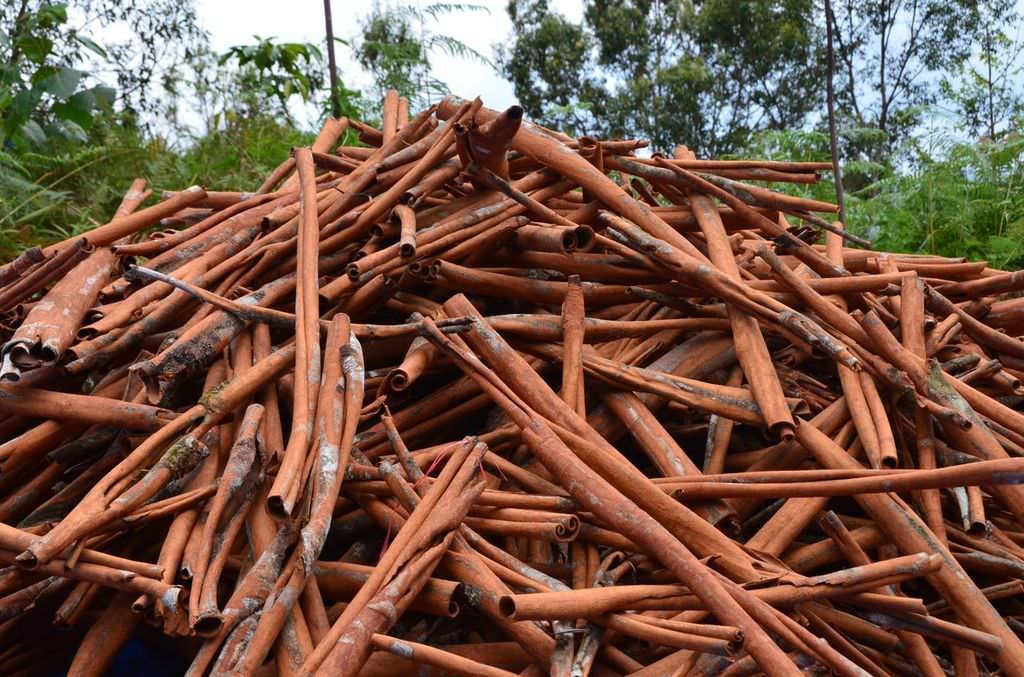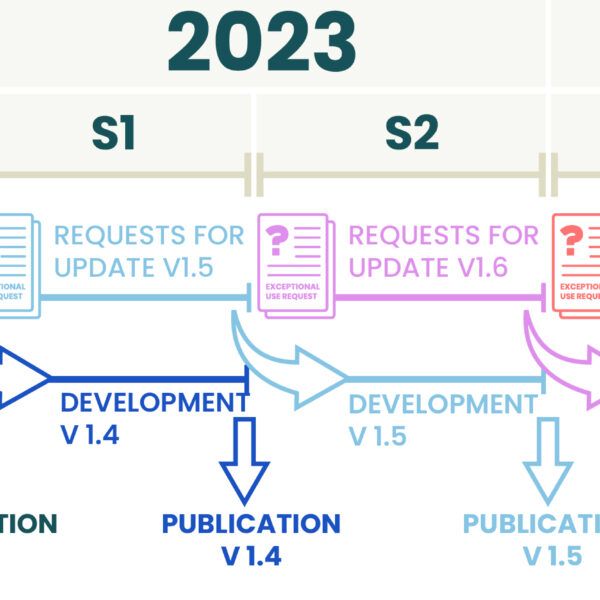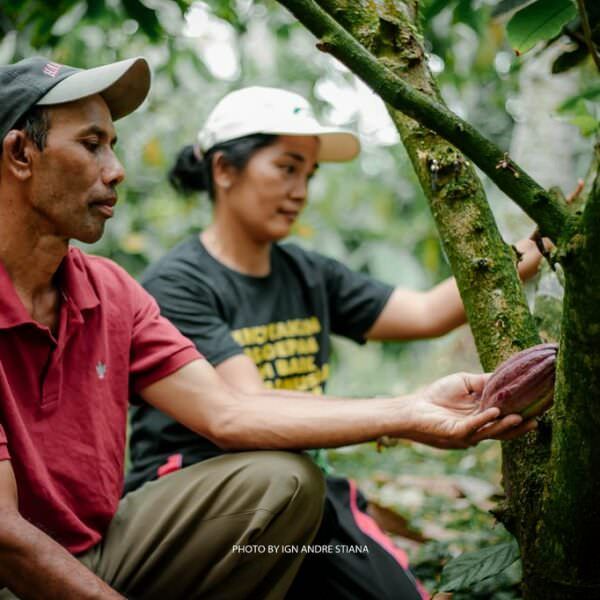Herbs & spices are used in a variety of foods, beverages, and flavorings and provide important income to farmers around the world. The Rainforest Alliance and the Union for Ethical BioTrade (UEBT) developed a joint Herbs & Spices Program. All ingredients certified under this new program will be able to carry the Rainforest Alliance Certified seal.
With this partnership, we build on the positive track record of the UEBT/UTZ cooperation in herbal tea, the decades-long experience of the Rainforest Alliance and UTZ in sustainable agriculture certification, and UEBT’s expert knowledge of ethical sourcing of ingredients from biodiversity, including crops collected from the wild.
Program scope
The UEBT/Rainforest Alliance Herbs & Spices Program brings together the UEBT/UTZ Herbal Tea Program along with the UTZ and Rainforest Alliance certification programs for herbs, spices, rooibos, and vanilla. The UEBT/Rainforest Alliance Herbs & Spices Program applies to:
- All ingredients for herbal and fruit infusions, including rooibos
- Other herbs & spices, including vanilla, chili, or pepper
- All wild collected crops, for which the Rainforest Alliance 2020 Sustainable Agriculture Standard would apply, in case they were cultivated.
What standards apply to you
In the UEBT/Rainforest Alliance Herbs & Spices program, the following standards apply to farms and supply chain actors:
- For farm certification: in general, the UEBT/Rainforest Alliance requirements compiled in a Field Checklist and two system checklists, for organizations located in sourcing and organizations not in sourcing areas, apply. There are some exceptions when farms will be certified against the Rainforest Alliance 2020 Sustainable Agriculture Standard instead, mainly to improve the usability and efficiency of implementation.
- For supply chain certification: the Rainforest Alliance 2020 Sustainable Agriculture Standard’s Supply Chain Requirements apply to companies buying from certified farms.
- For more details and exceptions, please visit our Which Standard Applies To You page.
Certification and auditing rules
The rules for certification and audits against the UEBT/Rainforest Alliance requirements are described in the Requirements for Certificate Holders, either for Certificate Holders not located in sourcing areas or for farms and local companies.
For Herbs and Spices certified against the Rainforest Alliance 2020 Standard, the Rainforest Alliance Certification and Auditing rules apply.
Labeling and claims opportunities
All ingredients certified under the UEBT/Rainforest Alliance Herbs & Spices Program are able to carry the Rainforest Alliance Certified seal and/or be linked to the Rainforest Alliance certification claims. For labeling and claims, the Rainforest Alliance Labeling and Trademarks Policy.
Royalties
In July 2021, a participation royalty was announced for all herbs, spices, rooibos and other herbal tea ingredients. From October 1, 2022, the new royalty for vanilla and saffron became $ 1,250 per MT cured vanilla beans or dried saffron. For key herbs and spices (pepper, cinnamon, chili pepper, oregano, coriander, paprika, cardamom, dill, clove, parsley, nutmeg, thyme, laurel/bay leaf, rosemary, tarragon), the royalty became $75 per MT dried crop. For all other herbs, spices and herbal tea, the royalty fee of €22.50 per MT still applies.
The Rainforest Alliance will be invoicing the royalty once in the supply chain at the level of the first buyer after the Rainforest Alliance farm certificate holder for all herbs, spices and herbal tea volumes that enter the Rainforest Alliance traceability system. This is independent of whether the crops originate from a UEBT/Rainforest Alliance certified or a Rainforest Alliance Certified farm. There are no additional volume-based royalties charged by UEBT.
Traceability
Online traceability is now available in our traceability platform MultiTrace for herbs, spices, rooibos and other herbal tea ingredients. Both UEBT/Rainforest Alliance certified, and Rainforest Alliance Certified farm and supply chain certificate holders who are part of this platform are able to trade their certified volumes.
We are now allowing mass balance for selected herbs and spices. Mass balance is a sourcing method that allows for certified and non-certified ingredients to become physically mixed during the shipping, processing and manufacturing processes, while administrative traceability must be maintained. Since 1st October 2022 mass balance traceability is available for all herbs, spices and herbal tea ingredients that are individually traced in the RA traceability platform, in addition to segregation and identity preserved. These crops are: Dill, Cardamom, Ceylon Cinnamon, Chili Pepper, Clove, Coriander, Laurel / Bay Leaf, Nutmeg, Oregano, Paprika, Parsley, Pepper, Rooibos, Rosemary, Saffron, Tarragon, Thyme and Vanilla.
For all other herbs, spices and herbal tea ingredient, that are grouped as ‘other herbs and spices’ in the Rainforest Alliance traceability platform, mass balance is not available; they need to be traced as segregated or identity preserved.
Your next steps and contacts
If your farm is audited against the UEBT/Rainforest Alliance requirements, you will need to contact UEBT at certification@uebt.org as soon as possible.
If you are a farm or a supply chain actor that needs to be audited against the Rainforest Alliance 2020 Standard, you will need to register online with the Rainforest Alliance. Contact us at herbsandspices@ra.org in case of questions.




